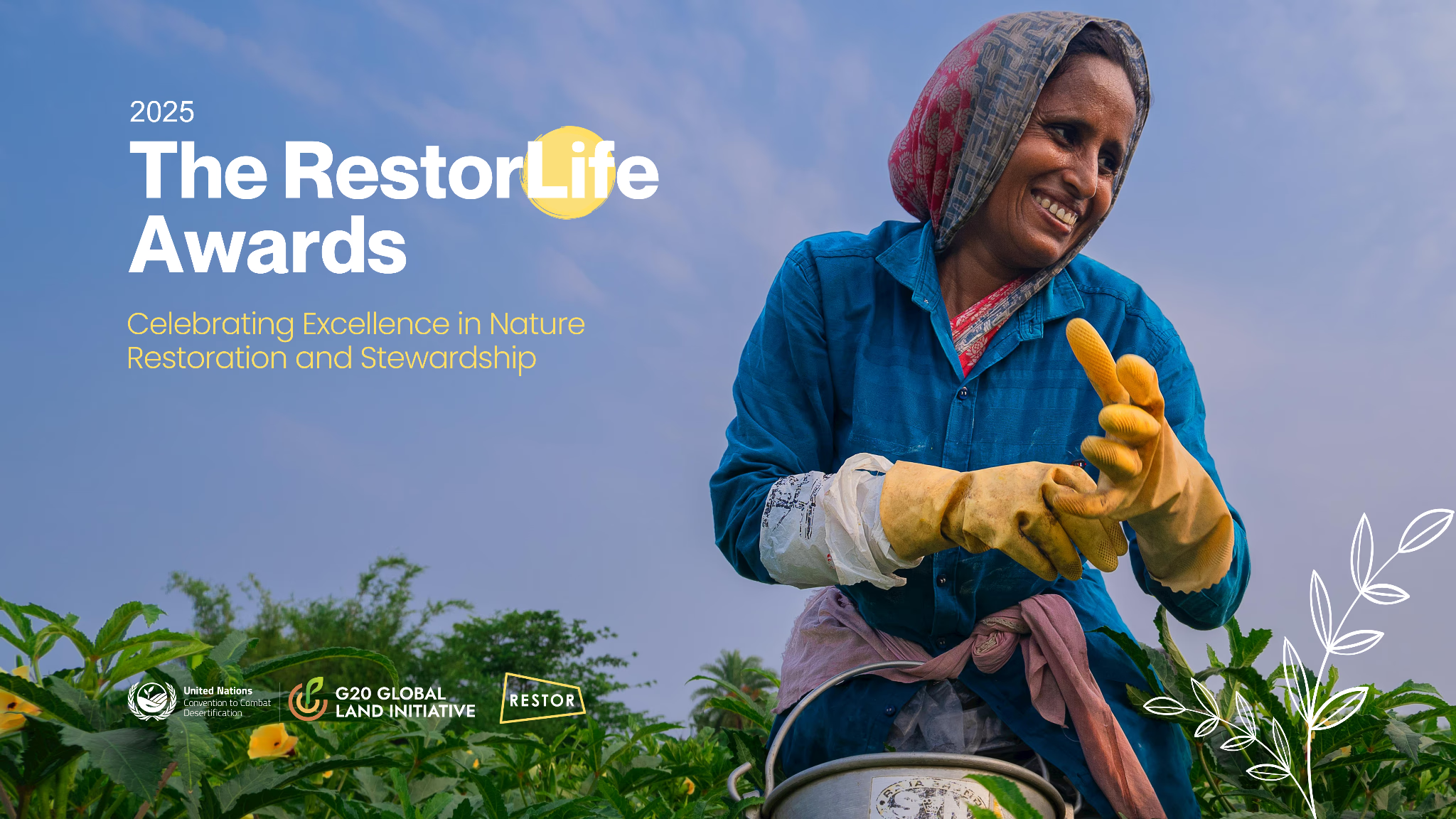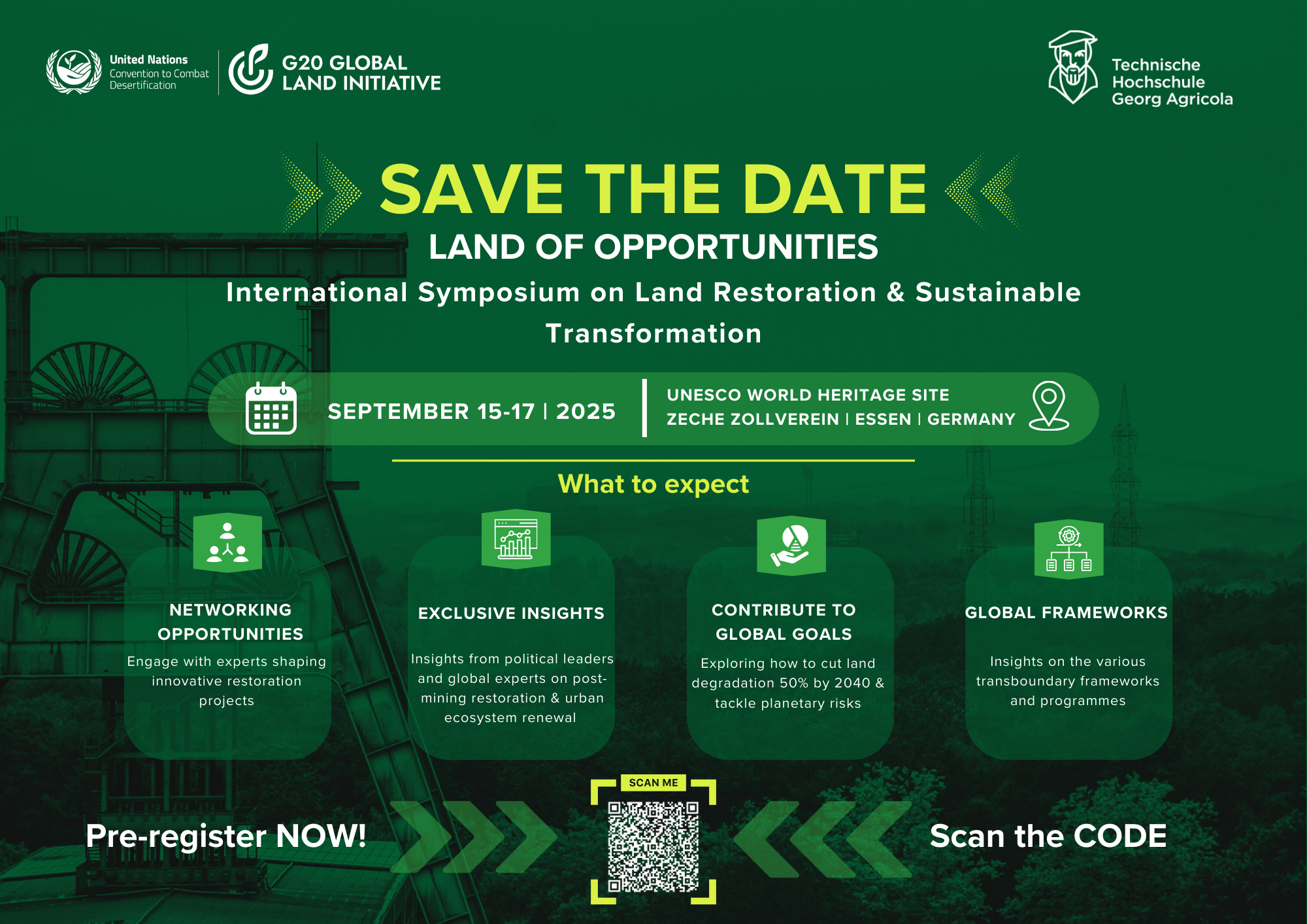Harnessing the Power of Gender-Inclusive Policies in Land Restoration

Women make up nearly half of the world’s agricultural workforce, but they often have less access to land than men. Today, less than one in five landholders worldwide are women, according a report by the UN Convention to Combat Desertification (UNCCD).
This is due to discriminatory practices related to land tenure, credit access, equal pay and decision making.
Gender-inclusive policies in land management are not only essential for achieving gender equality but also play a critical role in promoting effective and sustainable land restoration efforts.
G20 leaders mandated the G20 Global Land Initiative (GLI) to “encourage direct engagement of civil society, including by mobilizing the general public”.
In May, GLI is organizing a series of events during this year’s global gathering of land surveyors (FIG Working Week 2024) taking place in Accra, Ghana.
A roundtable co-hosted with GLI partners in Ghana on 16-18 May will focus on insights, challenges, best practices and ideas relating to gender and mining, including subjects such as land degradation caused by mining and post-mining land restoration.
During the FIG on 19-24 May, GLI will present three research papers during the formal sessions of the commissions that focus on climate change and land administration, and on spatial planning.Here are five key reasons why gender-inclusive approaches are crucial in this regard.
Increased Participation and Ownership
Gender-inclusive policies empower women to actively participate in land restoration initiatives, giving them a sense of ownership and responsibility over the land.
When women have equal access to resources, training and decision-making opportunities, they are more likely to invest their time and energy in restoration activities. This, in turn, increases engagement and commitment from local communities.
Increased participation can enhance the effectiveness and sustainability of restoration projects because it ensure that the projects are rooted in the needs and aspirations of those directly affected by land degradation.
Long-Term Sustainability and Impact
Gender-inclusive land management policies contribute to the long-term sustainability and impact of restoration projects by addressing underlying gender disparities and inequalities.
By mainstreaming gender considerations in the planning, implementation and monitoring processes, stakeholders can ensure that restoration efforts are more inclusive, equitable and effective.
This integrated approach helps to maximize the social, economic and environmental benefits of land restoration, leading to lasting improvements in ecosystem health, livelihoods, and well-being for present and future generations.
Economic Empowerment and Poverty Alleviation
Gender-inclusive land management policies address the underlying inequalities in access to and control over land, which disproportionately affect women and marginalized groups. When women’s rights to land ownership and tenure are assured, restoration initiatives can empower women economically and contribute to poverty alleviation.
For example, secure land rights enable women to invest in sustainable agricultural practices, improve productivity and generate income for themselves and their families, thereby breaking the cycle of poverty and dependency.
Diverse Perspectives and Knowledge
Women bring diverse perspectives and knowledge to land restoration efforts, drawing from their unique experiences and insights. By actively involving women in decision-making processes, restoration projects can benefit from a broader range of ideas and strategies that reflect the needs and priorities of local communities.
For example, women often possess traditional ecological knowledge that can inform more holistic and culturally relevant approaches to land restoration, leading to better outcomes in terms of biodiversity conservation and ecosystem resilience.
Social Cohesion and Resilience
Gender-inclusive approaches to land restoration foster social cohesion and resilience within communities by promoting greater gender equality and inclusivity.
When women are actively involved in decision-making processes and have equal access to resources, they are better positioned to advocate for their needs and interests, leading to more equitable and inclusive outcomes.
This enhanced social cohesion can strengthen community resilience to environmental shocks and stresses, such as climate change and natural disasters, by fostering solidarity, cooperation and mutual support among community members.
In conclusion, gender-inclusive policies are essential for unlocking the full potential of land restoration as a tool for sustainable development. By recognizing and addressing the gender dimensions of land management, stakeholders can harness the diverse talents, perspectives, and contributions of women to create more resilient, equitable, and thriving landscapes for all.








